
Nyamata: A Journey Through History and Resilience
Nyamata, a small town nestled in the Bugesera District of Rwanda, is a place where history, culture, and resilience converge. Known for its haunting yet profoundly important memorial site, Nyamata Genocide Memorial Centre, this town offers visitors a poignant reminder of Rwanda's past while showcasing the strength and unity of its people. The memorial, housed in a former church, is a solemn site dedicated to the memory of over 45,000 victims of the 1994 genocide. It provides an emotional and educational experience, guiding visitors through the tragic events with respect and dignity. Beyond its historical significance, Nyamata is surrounded by the natural beauty of the Rwandan countryside. The lush landscapes, characterized by rolling hills and vibrant greenery, offer a tranquil escape from the hustle and bustle of city life. Visitors can explore the local markets, where they can experience the vibrant culture and hospitality of the Rwandan people. Fresh produce, colorful textiles, and handmade crafts provide a sensory delight and a perfect opportunity to immerse oneself in the local way of life. Nyamata also serves as a gateway to other attractions in the Bugesera District, such as the scenic Lake Rweru and the Nyamata-Bugesera wetlands. These natural wonders provide ample opportunities for bird watching, boating, and enjoying the serene environment. Whether you are a history buff, a nature lover, or someone looking to understand the resilient spirit of Rwanda, Nyamata offers a unique and enriching experience.
Local tips in Nyamata
- Visit the Nyamata Genocide Memorial Centre early in the day to avoid crowds and have a more reflective experience.
- Explore the local markets to purchase unique handmade crafts and fresh produce, and to interact with the friendly locals.
- Take a trip to Lake Rweru for a peaceful day of bird watching and boating.
- Hire a local guide for a more in-depth understanding of Nyamata's historical sites and cultural nuances.
- Respect local customs and dress modestly, especially when visiting religious and memorial sites.
Nyamata: A Journey Through History and Resilience
Nyamata, a small town nestled in the Bugesera District of Rwanda, is a place where history, culture, and resilience converge. Known for its haunting yet profoundly important memorial site, Nyamata Genocide Memorial Centre, this town offers visitors a poignant reminder of Rwanda's past while showcasing the strength and unity of its people. The memorial, housed in a former church, is a solemn site dedicated to the memory of over 45,000 victims of the 1994 genocide. It provides an emotional and educational experience, guiding visitors through the tragic events with respect and dignity. Beyond its historical significance, Nyamata is surrounded by the natural beauty of the Rwandan countryside. The lush landscapes, characterized by rolling hills and vibrant greenery, offer a tranquil escape from the hustle and bustle of city life. Visitors can explore the local markets, where they can experience the vibrant culture and hospitality of the Rwandan people. Fresh produce, colorful textiles, and handmade crafts provide a sensory delight and a perfect opportunity to immerse oneself in the local way of life. Nyamata also serves as a gateway to other attractions in the Bugesera District, such as the scenic Lake Rweru and the Nyamata-Bugesera wetlands. These natural wonders provide ample opportunities for bird watching, boating, and enjoying the serene environment. Whether you are a history buff, a nature lover, or someone looking to understand the resilient spirit of Rwanda, Nyamata offers a unique and enriching experience.
When is the best time to go to Nyamata?
Iconic landmarks you can’t miss
Kigali Genocide Memorial
Discover the Kigali Genocide Memorial, a poignant site that honors the victims of the genocide and promotes healing, education, and hope for the future.
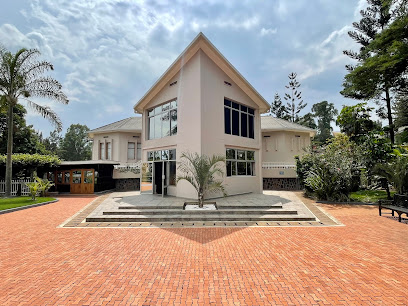
Kigali Serena Hotel
Discover the elegance of Kigali Serena Hotel, where luxury meets the heart of Rwanda's vibrant culture offering a unique experience for every traveler.
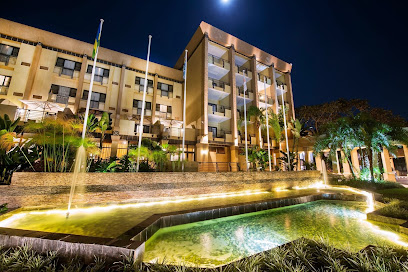
Inema Arts Centre
Discover the vibrant art scene at Inema Arts Centre, Kigali's premier destination for contemporary Rwandan art and cultural experiences.
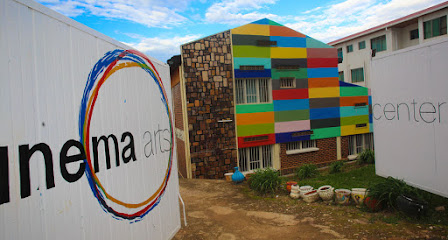
King's Palace Museum
Uncover the legacy of Rwanda's royalty at the King's Palace Museum, where history and culture intertwine in a stunning setting.
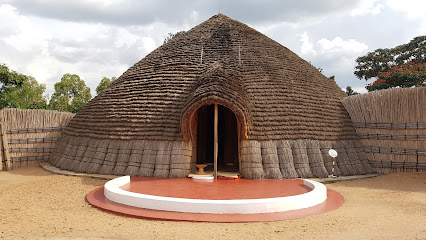
LA PALISSE HOTEL NYAMATA
Discover luxury and relaxation at La Palisse Hotel Nyamata, a premier destination in Rwanda with stunning views and exceptional service.
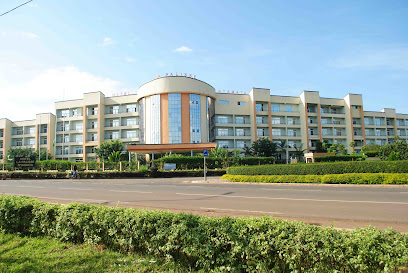
Four Points by Sheraton Kigali
Discover modern luxury and local charm at Four Points by Sheraton Kigali, your perfect base for exploring Rwanda's vibrant capital.

Rwanda Art Museum
Explore the Rwanda Art Museum: A vibrant cultural hub showcasing the rich artistic heritage of Rwanda in a historic presidential palace.
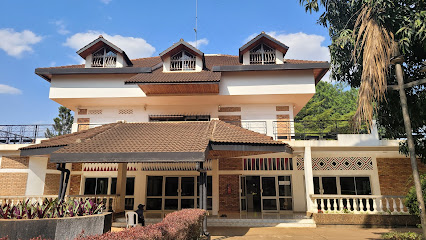
Golden Tulip Hotel
Discover unparalleled comfort and exquisite dining at Golden Tulip Hotel in Nyamata, a perfect blend of luxury and warm Rwandan hospitality.
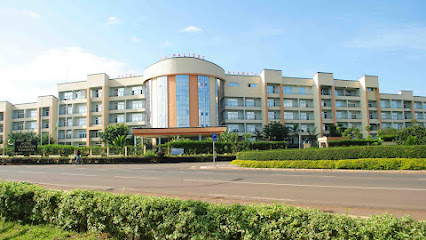
Palast Rock Hotel
Discover the heart of Bugesera at Palast Rock Hotel, where comfort meets local culture for an unforgettable Rwandan experience.

Belgian Peacekeepers Memorial
Visit the Belgian Peacekeepers Memorial in Kigali to reflect on the sacrifices of peacekeepers during the Rwandan Genocide and learn about Rwanda's profound history.
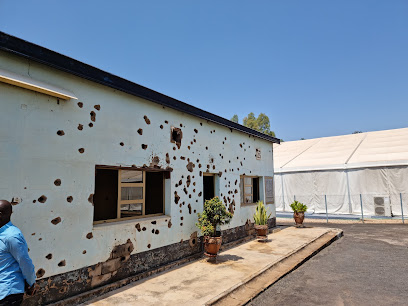
1000 Hills Distillery
Discover the heart of Rwandan spirits at 1000 Hills Distillery, a unique destination blending tradition, craft, and breathtaking views.
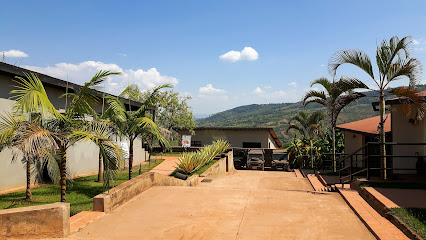
Campaign Against Genocide Museum
Discover the profound history of resilience and remembrance at the Campaign Against Genocide Museum in Kigali, Rwanda.
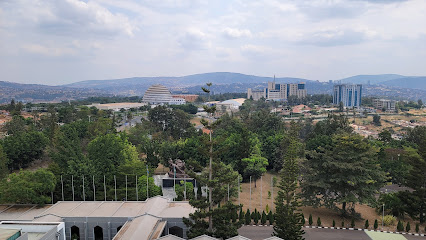
Nyanza Genocide Memorial
Explore the Nyanza Genocide Memorial in Kigali, a reflective space honoring the resilience and history of Rwanda's past.
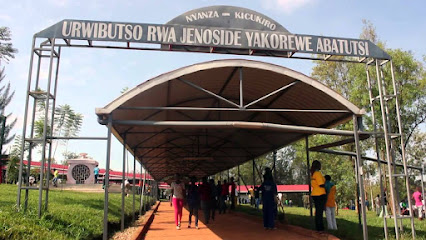
Nyamata Church Genocide Memorial
Explore the Nyamata Church Genocide Memorial, a powerful tribute to resilience and remembrance in Rwanda's history of healing and reconciliation.
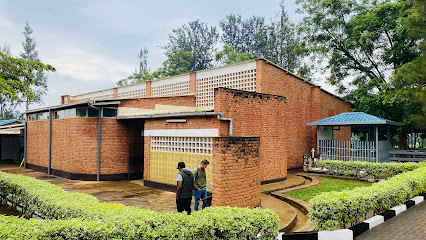
Kigali Genocide Memorial Archive of Rwanda
Visit the Kigali Genocide Memorial Archive to reflect on Rwanda's past and witness its inspiring journey towards healing and unity.
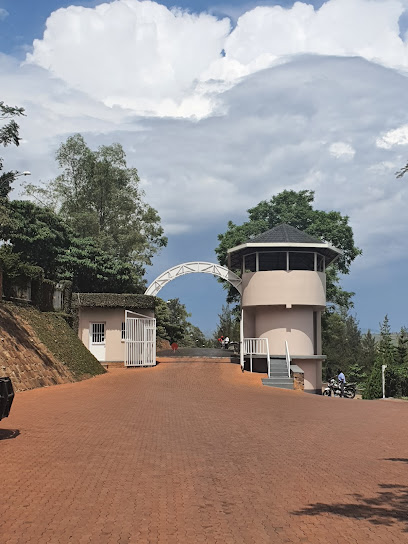
Unmissable attractions to see
Kigali Genocide Memorial
Explore the Kigali Genocide Memorial, a profound tribute to resilience and human rights, and learn about Rwanda's journey towards peace.

Kigali Convention Centre
Discover the architectural marvel and cultural hub of Rwanda at the Kigali Convention Centre, where innovation meets tradition in the heart of Kigali.
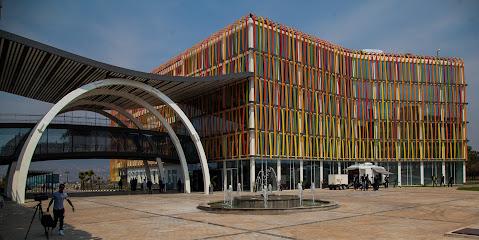
Inema Arts Centre
Explore Inema Arts Centre in Kigali, a vibrant hub for contemporary Rwandan art and culture, showcasing local talent and creativity.
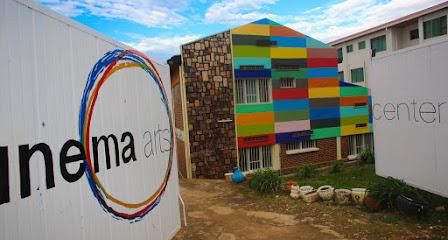
Kigali Conference and Exhibition Village (KCEV)
Experience the heart of Rwanda's innovation at the Kigali Conference and Exhibition Village, a premier venue for conferences and cultural events.

King's Palace Museum
Explore the grandeur of Rwanda's royal past at the King's Palace Museum in Nyanza, where history and culture come alive in a breathtaking setting.
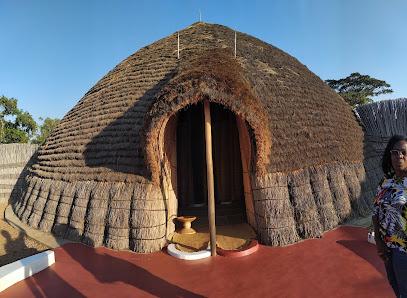
Nyandungu Urban Wetland Eco-Tourism Park
Explore the breathtaking Nyandungu Urban Wetland Eco-Tourism Park in Kigali – a natural sanctuary filled with vibrant flora and diverse wildlife.
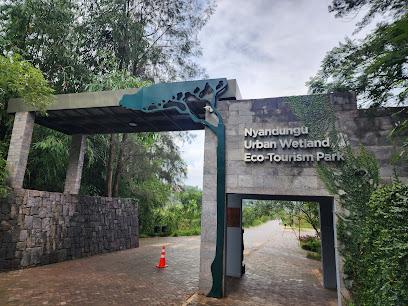
Kandt House Museum
Discover Rwanda's vibrant history and culture at Kandt House Museum, a gem in Kigali showcasing the nation's rich heritage and natural beauty.
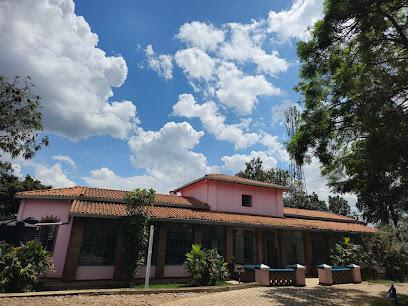
Rwanda Art Museum
Explore the Rwanda Art Museum in Kigali, a captivating destination showcasing the rich artistic heritage and culture of Rwanda.
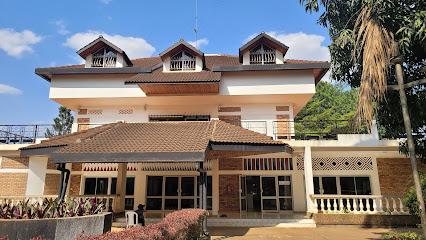
Rwanda Art Museum
Discover Rwanda's artistic heritage at the Rwanda Art Museum, where history and creativity intertwine in a captivating cultural experience.
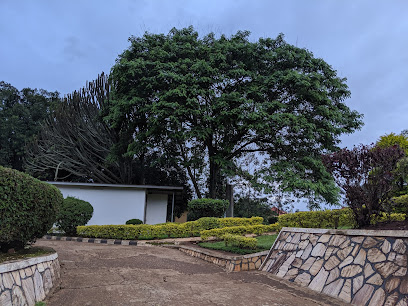
Niyo Arts Center
Explore the vibrant art scene at Niyo Arts Center in Kigali, where creativity meets Rwandan culture in an inspiring setting.
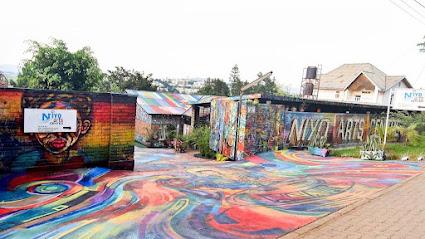
Campaign Against Genocide Museum
Explore the poignant narratives of resilience and healing at the Campaign Against Genocide Museum in Kigali, where history meets hope.
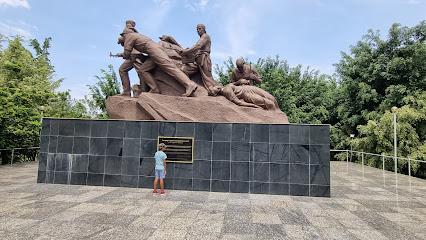
Nyamata Genocide Memorial Site
Explore the Nyamata Genocide Memorial Site, a profound homage to resilience and remembrance in Rwanda's history.
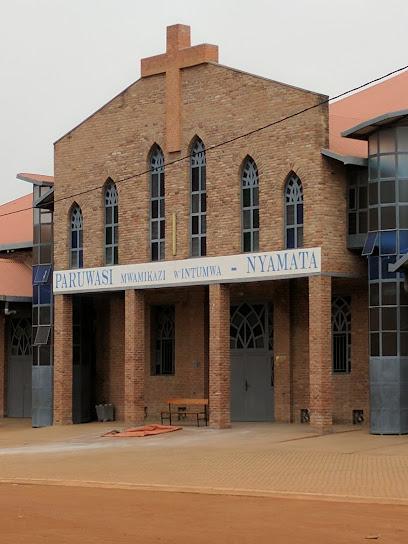
Azizi Life Studio
Experience the essence of Rwandan culture at Azizi Life Studio, your destination for unique handicrafts and artistic treasures in Kigali.
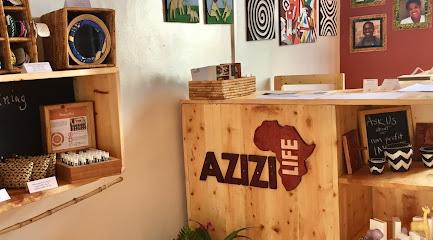
Ivuka Arts
Explore the vibrant art scene of Kigali at Ivuka Arts, where local creativity meets cultural heritage in a stunning gallery experience.
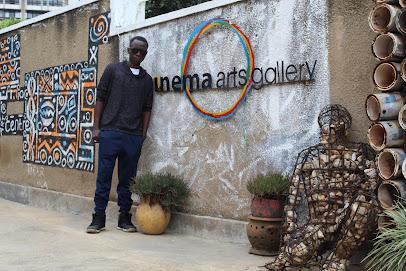
Coconut Kigali
Discover Coconut Kigali, a tropical amusement park in the heart of Rwanda, where fun, adventure, and relaxation blend seamlessly for an unforgettable experience.
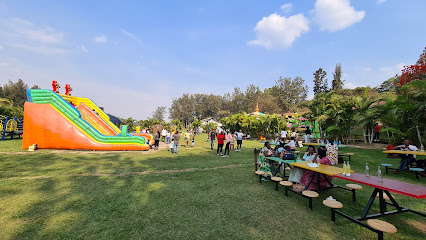
Essential places to dine
Sole Luna
Discover the heart of Italy in Kigali at Sole Luna – where authentic flavors meet vibrant ambiance.
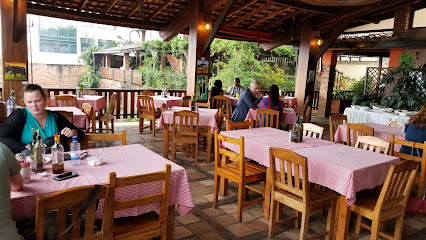
The Hut Restaurant and Boutique Hotel
Experience unparalleled hospitality at The Hut Restaurant and Boutique Hotel in Kigali, where Rwandan flavors meet comfort and style.

Heaven Restaurant & Boutique Hotel
Experience exquisite dining at Heaven Restaurant & Boutique Hotel in Kigali - where local flavors meet breathtaking views.
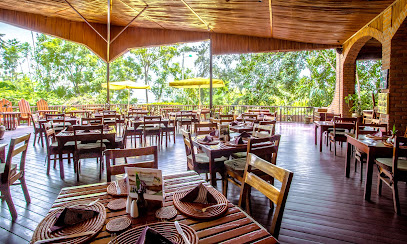
LA PALISSE HOTEL NYAMATA
Experience unparalleled comfort and warm Rwandan hospitality at La Palisse Hotel Nyamata – your perfect retreat in Bugesera.
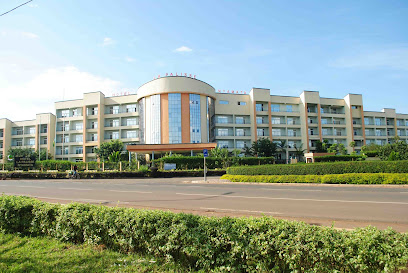
Great Wall Chinese Restaurant
Experience the essence of China with every bite at Great Wall Chinese Restaurant in Kigali – where flavors come alive.
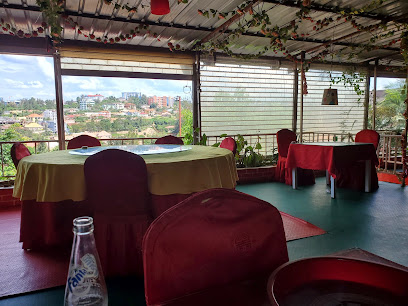
Ku Gahembe Bar
Discover authentic Rwandan flavors at Ku Gahembe Bar in Nyamata – famous for its mouthwatering grilled goat meat and warm hospitality.
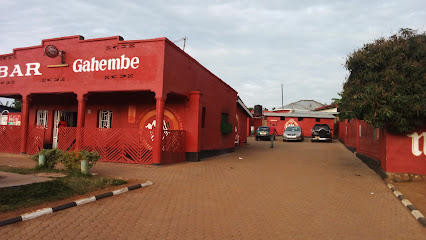
Brachetto Restaurant
Discover exquisite tapas and vibrant dining at Brachetto Restaurant in Kigali, where every meal is a celebration of flavor.
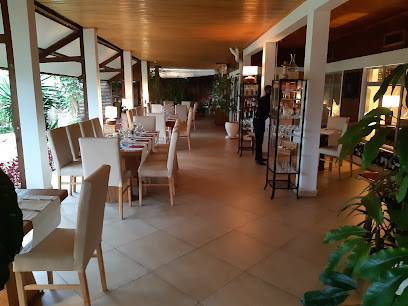
TAMU TAMU RESTAURANT
Experience authentic Rwandan cuisine at TAMU TAMU Restaurant in Kigali - where vibrant flavors meet a warm atmosphere.
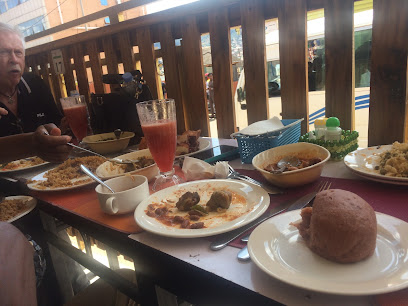
Meza Malonga
Savor exquisite dishes at Meza Malonga, Kigali's premier restaurant blending local flavors with international cuisine for an unforgettable dining experience.
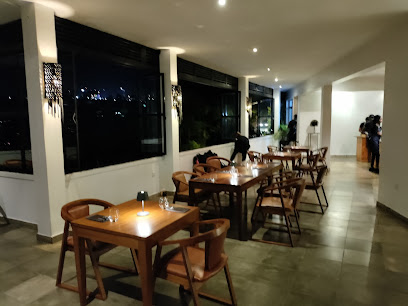
Happy Time
Experience authentic Rwandan flavors at Happy Time in Nyamata - where delicious food meets warm hospitality.
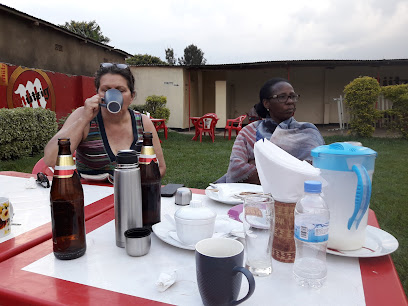
Nyurah
Experience exquisite fine dining at Nyurah in Kigali - where local flavors meet culinary artistry for an unforgettable meal.
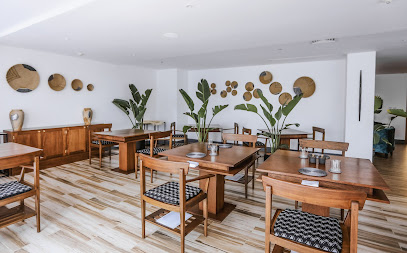
Calibou Caffee Nyamata
Discover the rich flavors of Rwandan coffee at Calibou Caffee Nyamata—a perfect blend of comfort and taste.

Hilton Motel
Discover comfort at Hilton Motel's bar in Nyamata—your perfect spot to unwind with local flavors and warm hospitality.
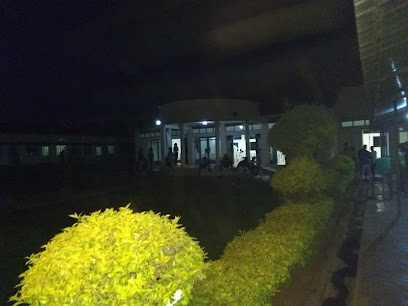
Gacaca Bar
Discover Gacaca Bar in Nyamata: A vibrant local bar offering affordable drinks and an authentic Rwandan atmosphere perfect for socializing.
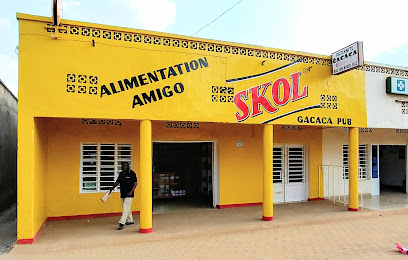
LUJO
Experience vibrant nightlife at LUJO - Rwanda's premier bar serving delicious food and drinks in a welcoming atmosphere.
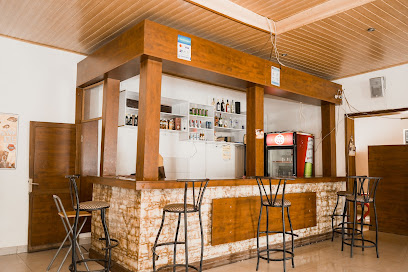
Markets, malls and hidden boutiques
Nziza Crafts
Explore the vibrant artistry of Rwanda at Nziza Crafts, a premier souvenir store offering unique handcrafted treasures in Kigali.
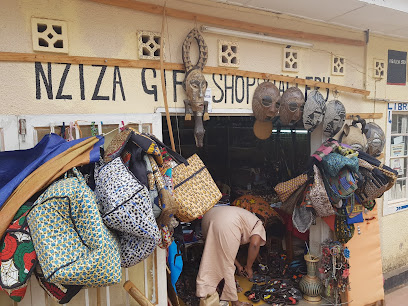
Abraham Konga Collections
Explore Abraham Konga Collections for authentic Rwandan souvenirs, unique handicrafts, and exquisite jewelry in the heart of Kigali.
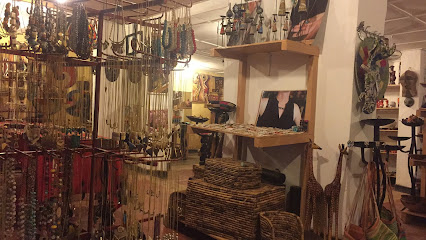
Made in Rwanda Shop
Discover the spirit of Rwanda through handmade crafts and unique souvenirs at the Made in Rwanda Shop, a must-visit boutique for every traveler.

STEG -IS Nyamata Store
Explore the vibrant collection of unique home goods at STEG -IS Nyamata Store, where local craftsmanship meets cultural authenticity in Rwanda.
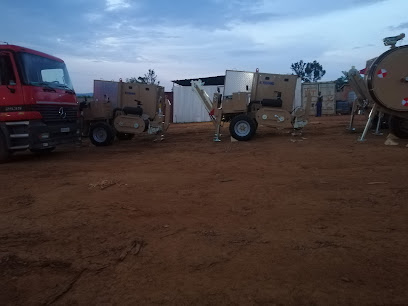
Mini Alimentation Chez Grace
Discover local produce and Rwandan culture at Mini Alimentation Chez Grace, a vibrant supermarket in Nyamata offering fresh goods and warm hospitality.

Akeza Shop
Discover unique handcrafted souvenirs at Akeza Shop in Kigali, showcasing the vibrant culture and artistry of Rwanda.
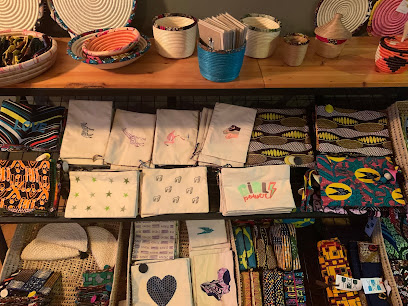
JOHN LIQUOR STORE
Discover the finest selection of local and international spirits at John Liquor Store in Nyamata, a must-visit for liquor enthusiasts.

Bahizi Shop
Explore Bahizi Shop in Nyamata for unique home goods and local crafts, reflecting Rwanda's rich heritage and artistry.

Nyamata
Explore Nyamata, Kigali’s premier butcher shop, where quality meats and local flavors come together for an authentic culinary experience.
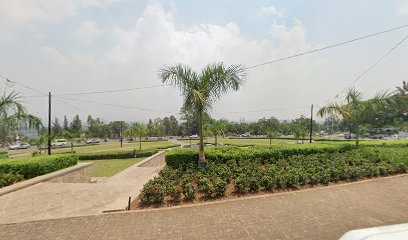
KABERA JP
Explore KABERA JP in Nyamata for unique home goods and authentic Rwandan crafts that make perfect souvenirs for your travels.

Airtel / Istore Nyamata
Explore Kigali with Airtel / Istore Nyamata – Your one-stop shop for mobile connectivity and the latest devices.

Chez Bisetsa
Discover authentic Rwandan craftsmanship at Chez Bisetsa, a unique home goods store in Nyamata showcasing the best of local artistry.

Clothing Boutique RW
Explore unique fashion at Clothing Boutique RW, where local craftsmanship meets contemporary style in the heart of Rwanda.

Buy in Rwanda Online Shop
Explore authentic Rwandan products at Buy in Rwanda Online Shop, your gateway to unique souvenirs and local craftsmanship.

kabera jean paul
Explore the vibrant craftsmanship of Rwanda at Kabera Jean Paul, a unique home goods store in Nyamata filled with authentic local treasures.

Essential bars & hidden hideouts
Ku Gahembe Bar
Experience the vibrant flavors of Rwandan cuisine at Ku Gahembe Bar, a must-visit grill spot in Nyamata's bustling atmosphere.
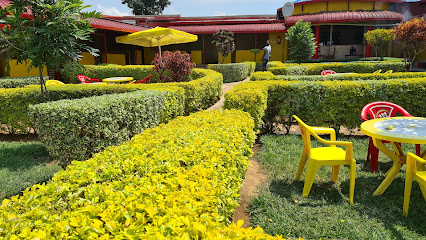
Gacaca Bar
Experience the vibrant nightlife of Nyamata at Gacaca Bar, where local culture and affordable drinks come together in a lively setting.
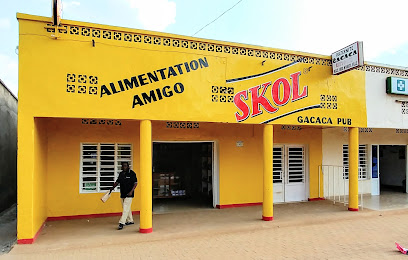
La Preferance Bar
Experience the vibrant nightlife at La Preferance Bar in Nyamata, a perfect blend of local culture and refreshing drinks.
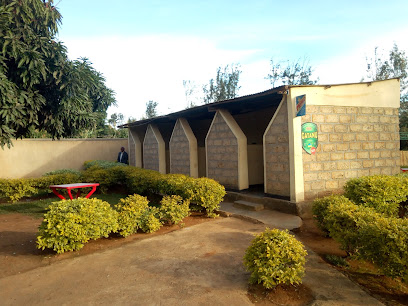
Black and White Nyamata
Discover the vibrant atmosphere of Black and White Nyamata, a local bar in Nyamata offering a taste of Rwandan hospitality and culture.
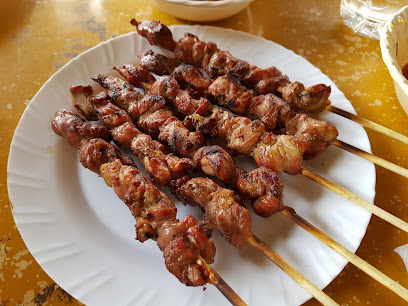
Connect Bar
Immerse yourself in the lively atmosphere of Connect Bar, Nyamata - the perfect spot for relaxation and local flavors.
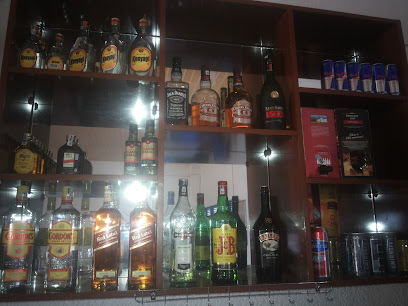
Select Bar
Experience the heart of Nyamata's nightlife at Select Bar, a cozy spot for drinks and local charm.

Holly Land Park Nyamata
Explore Holly Land Park Nyamata, a peaceful oasis in Rwanda, perfect for relaxation, picnics, and experiencing local culture amidst nature's beauty.
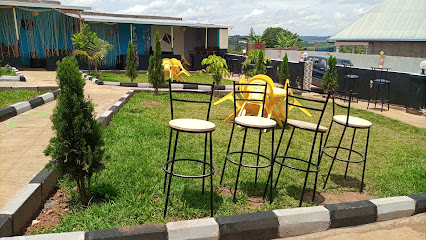
CELEBRAT NYAMATA
Experience authentic Rwandan flavors at CELEBRAT NYAMATA, the go-to grill restaurant in Nyamata for delicious grilled dishes and vibrant atmosphere.
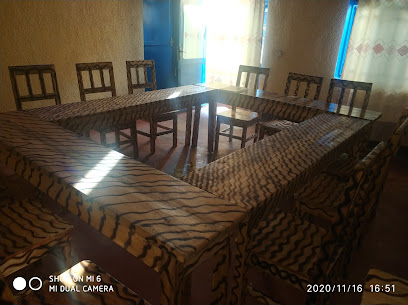
Kings Corner
Discover the flavors of Rwanda at Kings Corner, a top grill restaurant in Nyamata, offering delicious grilled dishes in a cozy atmosphere.
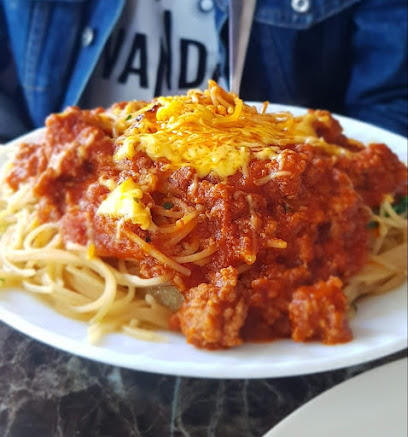
Best Corner
Discover the vibrant nightlife at Best Corner, a lively bar in Nyamata offering local drinks and a welcoming atmosphere for tourists and locals alike.

Musave
Experience the vibrant nightlife at Musave, a lively bar in Nyamata offering local drinks and a warm atmosphere.

Madis
Experience the vibrant culture of Rwanda at Madis, a lively bar in Nyamata offering local drinks and a warm atmosphere.

izayi bar
Experience the vibrant nightlife at Izayi Bar in Nyamata, where local culture meets a lively atmosphere for an unforgettable evening.

Sunshine Bar & Resto
Discover the lively ambiance and authentic flavors of Rwanda at Sunshine Bar & Resto in Nyamata.
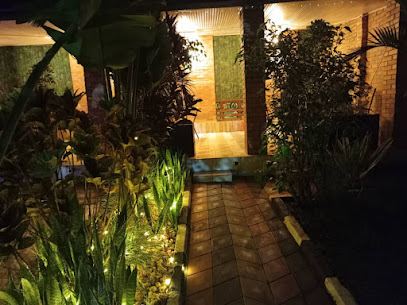
Local Phrases
-
- HelloMuraho
[moo-rah-ho] - GoodbyeMurabeho
[moo-rah-bay-ho] - YesYego
[yay-go] - NoOya
[oh-yah] - Please/You're welcomeMwakoze
[mwa-ko-zay] - Thank youMurakoze
[moo-rah-ko-zay] - Excuse me/SorryNdasaba
[ndah-sah-ba] - How are you?Amakuru?
[ah-mah-koo-ro] - Fine. And you?Ni meza. Wewe?
[nee may-zah. way-way] - Do you speak English?Urwandikira iki?
[oor-wan-dee-kee-rah ee-kee] - I don't understandSimvuga
[seem-voo-ga]
- HelloMuraho
-
- I'd like to see the menu, pleaseNifashishije ijambo, cyaneza
[nee-fah-shee-she-jay ee-jahm-bo, chyah-nay-zah] - I don't eat meatSiye niyamira imboga
[see-yay nee-yah-mee-rah eem-bo-gah] - Cheers!Amahoro!
[ah-mah-ho-ro] - I would like to pay, pleaseNifashishije guhindura, cyaneza
[nee-fah-shee-she-jay goo-heen-doo-rah, chyah-nay-zah]
- I'd like to see the menu, pleaseNifashishije ijambo, cyaneza
-
- Help!Ubutabera!
[oo-boo-tah-bay-rah] - Go away!Jya uza!
[jee-yah oo-zah] - Call the Police!Higa polisi!
[hee-gah po-lee-see] - Call a doctor!Higa dokotara!
[hee-gah doh-koh-tah-rah] - I'm lostNarashize
[nah-rah-she-zay] - I'm illNdi umwe
[ndee oom-way]
- Help!Ubutabera!
-
- I'd like to buy...Nifashishije kugura...
[nee-fah-shee-she-jay koo-goo-rah] - I'm just lookingNshaka kumva byinshi
[n-shah-kah koo-mvah bee-n-shee] - How much is it?Ni iyihe?
[nee ee-yee-hay] - That's too expensiveIyo ni iyerekana cyane
[ee-yo nee ee-yay-ray-kah-nah chyah-nay] - Can you lower the price?Wowe wakoresheje isoko?
[woh-way wah-koh-ray-shay jay ee-so-koh]
- I'd like to buy...Nifashishije kugura...
-
- What time is it?Ni gihe?
[nee gee-hay] - It's one o'clockNi saa y'imwe
[nee sah yim-way] - Half past (10)Saaa kumi n'ebyiri
[sah koo-me nay-bee-ree] - MorningUmugoroba
[oom-oo-go-roh-bah] - AfternoonUmusi
[oo-moo-see] - EveningIgihe cy'umuntu
[ee-gee-hay chee-oo-moon-too] - YesterdayEjo
[ay-joh] - TodayUyu munsi
[oo-yoo moon-see] - TomorrowEjo hazaza
[ay-joh hah-zah-zah] - 1Rimwe
[ree-mway] - 2Kabiri
[kah-bee-ree] - 3Gatatu
[gah-tah-too] - 4Kane
[kah-nay] - 5Gatanu
[gah-tah-noo] - 6Gatandatu
[gah-tahn-dah-too] - 7Kanani
[kah-nah-nee] - 8Ruba
[roo-bah] - 9Kenda
[ken-dah] - 10Mwenda
[mwen-dah]
- What time is it?Ni gihe?
-
- Where's a/the...?Ehe hari...
[ay-hay hah-ree] - What's the address?Aho ni cyangwa?
[ah-hoh nee chyan-gwah] - Can you show me (on the map)?Ukeneye kunjyana (ku mutindi)?
[oo-ken-ay-yay koon-jyah-nah koo moo-teen-dee] - When's the next (bus)?Ni iki gito (bus)?
[nee ee-kee gee-toh boos] - A ticket (to ....)Igiti (ku ...)
[ee-gee-tee koo]
- Where's a/the...?Ehe hari...
History of Nyamata
-
Nyamata is a town located in the Bugesera District of Rwanda's Eastern Province. It is a notable site for its historical significance and cultural heritage. Nyamata has evolved from a small settlement to a bustling town, reflecting Rwanda's broader journey of growth and resilience.
-
Nyamata is situated in the Bugesera region, an area known for its scenic landscapes of rolling hills and lakes. Historically, Bugesera has been an agricultural hub, with its fertile land supporting the cultivation of crops such as maize, beans, and cassava. The region is also known for its traditional cattle herding.
-
One of the most significant and somber sites in Nyamata is the Nyamata Genocide Memorial. During the 1994 Rwandan Genocide, thousands of Tutsis sought refuge in the Nyamata Catholic Church. Tragically, the church became the site of a horrific massacre. Today, the memorial stands as a poignant reminder of the atrocities and serves as a place for remembrance and education.
-
Before the arrival of European colonizers, the Bugesera region, including Nyamata, was inhabited by various Rwandan ethnic groups, primarily the Hutu and Tutsi. The region was characterized by its local governance systems and agricultural practices. Oral traditions and historical records provide insights into the social and economic life of the people during this period.
-
Rwanda, including Nyamata, was colonized first by Germany in the late 19th century and then by Belgium after World War I. The colonial period brought significant changes, including the introduction of new administrative structures and the exploitation of local resources. The colonial rule also exacerbated ethnic divisions, laying the groundwork for future conflicts.
-
Rwanda gained independence from Belgium in 1962. The post-independence period in Nyamata, like the rest of the country, was marked by political upheaval and ethnic tension. The struggles for power and the marginalization of certain groups set the stage for the tragic events of the 1994 genocide.
-
In recent years, Nyamata has seen significant economic development, particularly in agriculture. Efforts to modernize farming practices and improve infrastructure have contributed to the town's growth. Initiatives to promote sustainable agriculture and market access are helping to improve the livelihoods of local residents.
-
Nyamata is rich in cultural heritage, with traditional music, dance, and crafts playing a significant role in the community's social life. The Intore dance, traditional drumming, and the creation of Imigongo art are some of the cultural expressions that visitors can experience. Local festivals and ceremonies provide a glimpse into the vibrant cultural traditions of the area.
-
The natural beauty of Nyamata and its surroundings make it an attractive destination for ecotourism. The nearby lakes, wetlands, and wildlife offer opportunities for bird watching, hiking, and nature tours. Conservation efforts are underway to protect the region's biodiversity and promote sustainable tourism practices.
Nyamata Essentials
-
Nyamata is located in the Bugesera District in the Eastern Province of Rwanda. The nearest international airport is Kigali International Airport, approximately 30 kilometers away. From Kigali, you can take a taxi or a bus to Nyamata. The journey typically takes around 45 minutes to 1 hour by road. Buses to Nyamata are frequent and depart from various bus terminals in Kigali, such as Nyabugogo Bus Terminal.
-
Nyamata is relatively small, and many of its attractions are within walking distance. For longer trips, local taxis and motorcycle taxis (motos) are readily available and relatively inexpensive. Public buses and minibuses (matatus) operate within the town and connect to nearby villages. Renting a car can also be a convenient option for exploring the surrounding areas at your own pace.
-
The official currency in Rwanda is the Rwandan Franc (RWF). Credit cards are accepted in some hotels, restaurants, and shops, but it is advisable to carry cash, especially in smaller establishments and rural areas. ATMs are available in Nyamata, but it is wise to withdraw sufficient cash in Kigali before traveling to ensure you have enough funds.
-
Nyamata is generally a safe destination for tourists. However, like any travel destination, it is advisable to take standard precautions. Avoid walking alone at night in unfamiliar areas and keep an eye on your belongings in crowded places. While there are no specific high-crime areas targeting tourists, it is always best to stay vigilant and aware of your surroundings.
-
In case of emergency, dial 112 for immediate assistance. The local police station and medical facilities are available in Nyamata. It is recommended to have travel insurance that covers medical emergencies. For minor health issues, there are pharmacies in the town where you can purchase over-the-counter medications.
-
Fashion: Do dress modestly to show respect for local customs. Avoid wearing revealing clothing. Religion: Do respect local customs and traditions. When visiting churches or memorial sites, dress conservatively and behave respectfully. Public Transport: Do be respectful and give up your seat to elderly passengers. Don't eat or drink on public transport. Greetings: Do greet people with a handshake. A polite greeting in Kinyarwanda, such as 'Muraho', is appreciated. Eating & Drinking: Do try local delicacies and accept food offerings graciously. Don't refuse hospitality, as it is considered impolite.
-
To experience Nyamata like a local, visit the local markets where you can buy fresh produce and traditional Rwandan goods. Engage with locals, as they are often friendly and willing to share stories about the town's history and culture. Don't miss visiting the Nyamata Genocide Memorial, a poignant reminder of Rwanda's past. For a unique experience, take a stroll around the picturesque Bugesera District and enjoy the serene landscapes.
Trending Landmark in Nyamata
-
Kigali Genocide Memorial
-
Kigali Serena Hotel
-
Inema Arts Centre
-
King's Palace Museum
-
LA PALISSE HOTEL NYAMATA
-
Four Points by Sheraton Kigali
-
Rwanda Art Museum
-
Golden Tulip Hotel
-
Palast Rock Hotel
-
Belgian Peacekeepers Memorial
-
1000 Hills Distillery
-
Campaign Against Genocide Museum
-
Nyanza Genocide Memorial
-
Nyamata Church Genocide Memorial
-
Kigali Genocide Memorial Archive of Rwanda
Nearby Cities to Nyamata
-
Things To Do in Kigali
-
Things To Do in Kirundo
-
Things To Do in Muhanga
-
Things To Do in Butare
-
Things To Do in Muyinga
-
Things To Do in Karongi
-
Things To Do in Ngozi
-
Things To Do in Kibuye
-
Things To Do in Ruhengeri
-
Things To Do in Kayanza
-
Things To Do in Nyagatare
-
Things To Do in Rubavu
-
Things To Do in Gisenyi
-
Things To Do in Muramvya
-
Things To Do in Cibitoke







